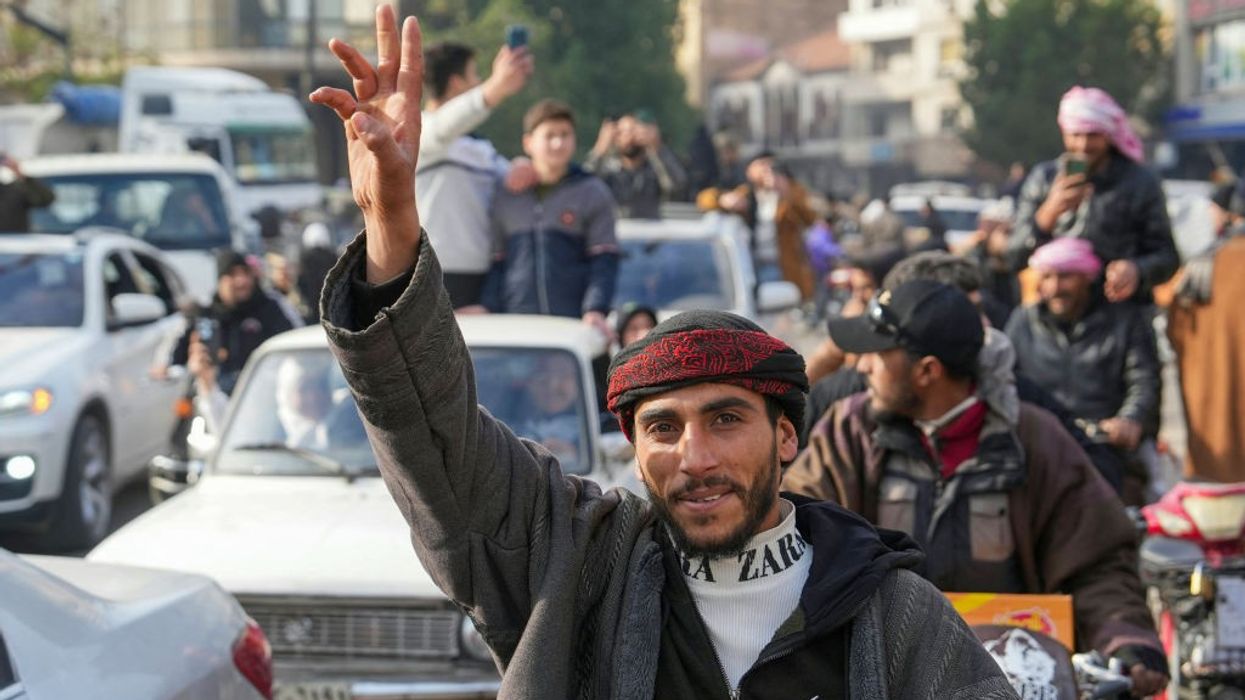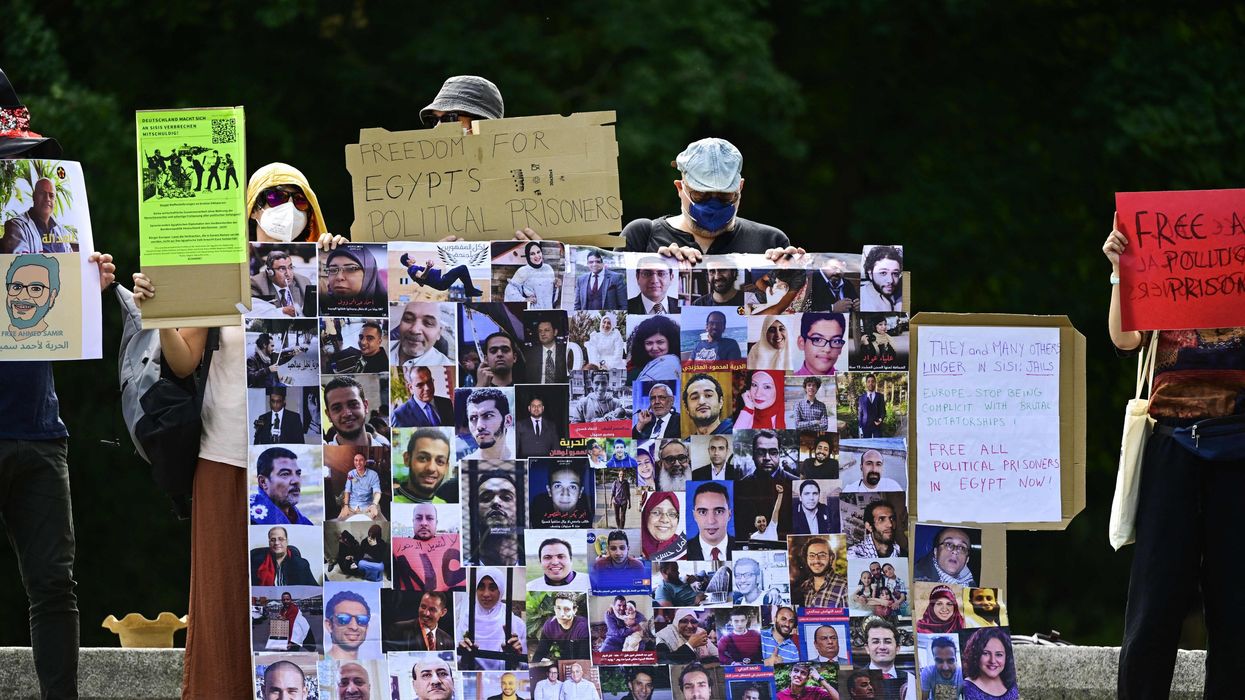Syrians Finally Won the Arab Spring. Can They Avoid Pitfalls and Win Democracy?
Overthrowing a dictator is very difficult, but it is no guarantee of liberty.
The Syrian Revolution of 2024 has succeeded in deposing the al-Assad dynasty, in power since 1970, throwing off the rule of the once mighty Syrian Socialist Baath Party, a feared and murderous one-party state. Rebel forces streamed into the capital, Damascus, Sunday morning, facing no significant resistance from government troops, amid rumors that dictator Bashar al-Assad had departed the country for parts unknown a day or two ago.
The tip of the spear of the revolution was the fighters of the Levant Liberation Council (Hay’at Tahrir al-Sham or HTS), a hard-line fundamentalist organization that had run the province of Idlib in an authoritarian manner in recent years. It is not ISIL (ISIS, Daesh), though that is one path the victors could take if they were so inclined. So far, their behavior in Aleppo has presented a mixed picture, with some killing of Kurds but less turmoil, including for Christians, than some had feared.
The revolution has, however, now become a mass movement, and despite the Fundamentalist Vigilante (“Salafi Jihadi”) shape of the more effective militias, all sorts of people have joined in. Many of the expatriate supporters of the revolution are businessmen and liberals, who had hoped to come to power in 2011 before al-Assad deliberately provoked a civil war and drove the opposition into the arms of Turkey and the Gulf.
Syria is not well placed for a democratic transition, though stranger things have happened. It would be a shame if the people had to trade one form of authoritarianism for another, as happened in Egypt, Libya, Tunisia, Yemen, and Sudan. Overthrowing a dictator is very difficult, but it is no guarantee of liberty.
Al-Assad is the seventh long-ruling Arab dictator to fall since January 2011. The strongmen of Tunisia, Egypt, Libya, and Yemen fell in 2011-2012. The Bahrain monarchy, however, managed to stay in power, as did Al-Assad in Syria, though the cost to the Syrian people was a years-long civil war that left hundreds of thousands dead and half the country homeless.
I wrote a book about these “Arab Spring” youth revolts, based on field work, The New Arabs, which is still good background reading — if I do say so myself.
"Syrians are better off with the possibility of social evolution than with being locked in a political iron cage, even if the ride may turn very bumpy."
Another shoe dropped when a coalition of leftist labor unions, Sufi orders, and reformist officers overthrew Omar al-Bashir in Sudan on 11 April 2019.
Of the revolts, in Egypt the youth provoked a military coup and then pressured the army to go back to the barracks. In 2013, the army made a counter-coup and Egypt has been run in an even more authoritarian fashion ever since.
In Tunisia, there was a successful democratic transition with regular elections in which the losers went home, until 25 July 2021, when elected President Qais Saied made a self-coup and abolished democracy. Tunisia is now as authoritarian or more as under Zine El Abidine Ben Ali, the general overthrown in mid-January, 2011.
Libya fell into civil war and a kind of partition. Nationalist forces led by Khalifa Hafter control the eastern part of the country, and Muslim fundamentalist forces control the West, along with the capital of Tripoli. They say they have made a government of national unity, but its success is murky. Egypt, the United Arab Emirates, the CIA, and Russia support Hafter. Turkey supports Tripoli.
Yemen fell into civil war, with 80% of the population now ruled by the Houthi Shiite Zaydi militia, which has attracted some Iranian support. A southern separatist militia and Muslim Brotherhood militias have positions in southern and eastern provinces, backed by the UAE and Saudi Arabia, respectively.
Sudan saw wrangling between civilians and the officer corps, which dragged its feet on going to the barracks. On October 25, 2021, General Abdel Fattah al-Burhan staged a coup and arrested many civilian officials. Then the officer corps split, with the conventional forces backing al-Burhan and the Rapid Support Forces (RSF) special operations forces mutinying, with the support of the United Arab Emirates (they get around). The country has plunged into civil war and the humanitarian disaster rivals Gaza in its intensity.
One reason these attempts at a democratic transition failed is that all these countries are desperately poor, except for Libya and Bahrain, which only have oil money, which functions anti-democratically to strengthen the state. Adam Przeworski at NYU, now emeritus, found that middle-income countries like Spain and Taiwan had a better chance of pulling off a transition from an authoritarian to a democratic system. Why is not clear. My guess is that in societies where the government is wealthier than the society, central state actors can overwhelm the public. Where a society has a lot of middle-class people and business interests that value democracy, as in South Korea, they just tell attempted coup-makers “no!”
It also matters what bargains elites make with each other and with the public. One problem everyone ran into in the aftermath of the Arab Spring was that a strong rural-urban divide emerged, which made it difficult to reach a satisfactory compromise. It was paralleled by a nationalist – Muslim fundamentalist divide.
In 2012-13, rural Egypt wanted the Muslim Brotherhood. Urban Egypt mostly hated the Muslim Brotherhood. Abdel Fattah El-Sisi took advantage of the split to make a coup that might satisfy both demographics.
The officer corps has collapsed in Syria, so it doesn’t look like Egypt. If it can move to elections and establish a representative government, Syrians could have a shot at a better life. But if it takes the path of Yemen or Libya, with fundamentalist militias fighting for power, then it will become (even more of) a basket case.
The fate of the 2.4 million Kurds in the northeast, and of 3.5 million Alawites in the northwest, and of possibly a million Christians — plus millions of secular-minded, nationalist Sunnis in Damascus and Aleppo, is very much up in the air. The danger of reprisals against the Alawites for having been the backbone of the Baath Party for 55 years is real.
Those considerations are for another day. Today, let the Syrians bask in the overthrow of a horrid dictatorship that tortured 10,000 prisoners to death, kept thousands of prisoners of conscience locked up, and killed hundreds of thousands of people with indiscriminate fire and barrel bombs, and sometimes chemical weapons. Syrians are better off with the possibility of social evolution than with being locked in a political iron cage, even if the ride may turn very bumpy.


